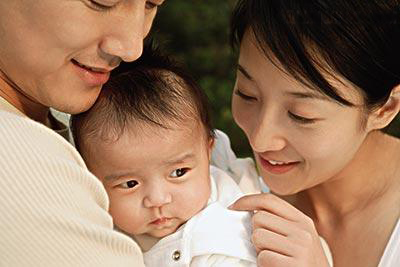One-child policy to stay despite experts' critique
 0 Comment(s)
0 Comment(s) Print
Print E-mail Shanghai Daily, April 11, 2012
E-mail Shanghai Daily, April 11, 2012
China aims to stabilize its population at about 1.39 billion people by 2015 by sticking to the existing family planning policy, dampening experts' hopes of an unwinding of the tough rules, according to a plan the central government posted on its website yesterday.

The central government projected that during the next five years the nation's population will grow more slowly due to a drop in the number of fertile women in their 20s. The number of elderly people will keep rising, and the labor population will reach a peak and then decline slowly. The elderly population will increase quickly at first as people born in the nation's first baby boom in the 1950s enter their old age.
China reached a milestone last year when the government announced that, for the first time, the urban population surpassed the rural one.
Local population experts said the plan means that the nation won't ease the current strict population policy, though experts and the public have called for the policy change.
Currently, couples may have a second child under a few conditions, such as both spouses being from one-child families, or the first child has a non-inherited disease. In some provinces, rural couples are allowed to have a second child if their first child is a girl.
According to the government, China's large population imposes pressure on the nation's sustainable development and has become a bottleneck for China's competitiveness. The gender imbalance, with many more boys born than girls, poses a big social problem. Changes in family structure, including smaller families and family members not living together, also challenge social management and public service.
However, Shanghai's population experts said the family planning policy isn't in line with China's current population situation, especially in big cities where birth rates are very low.
Wang Guixin of the Population Research Institute of Fudan University said that changing the strict family planning policy would help solve problems.
"Family planning is effective when the population rises very quickly under a high birth rate and has shown its effects in the past 30 years," he said. "(But now) the situation has changed, as couples, especially those in big cities, don't want to have children or give up the right to have a legal second child due to the high child-raising cost and severe work pressure."






Go to Forum >>0 Comment(s)